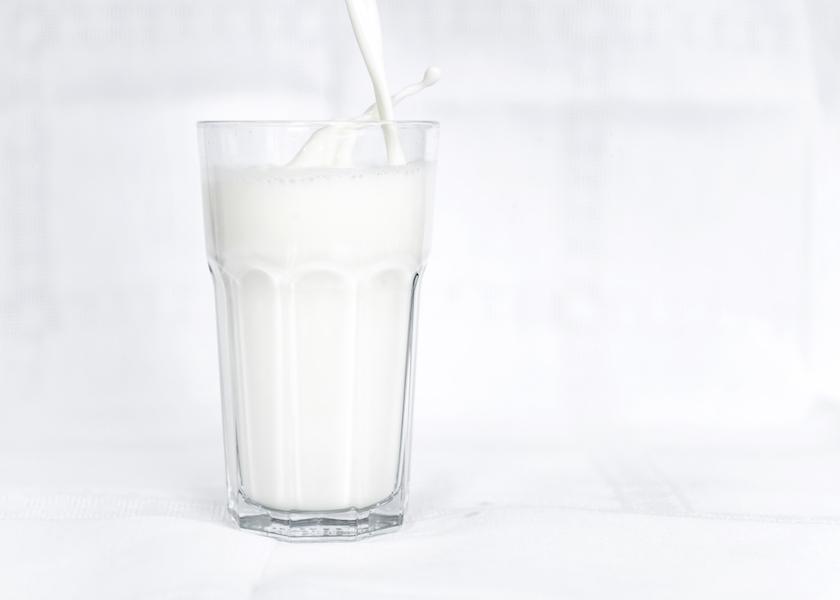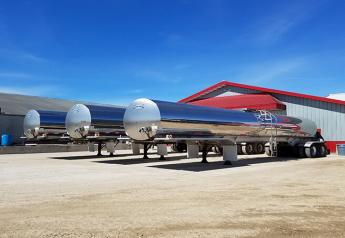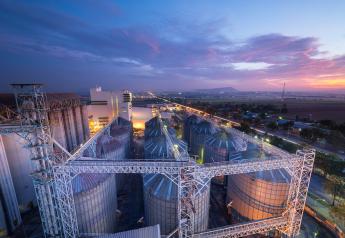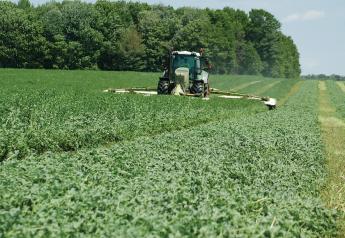USDA’s New Partnerships for Climate-Smart Commodities Program Benefits Dairy

On September 14, 2022, Secretary Vilsack announced USDA is investing up to $2.8 billion in 70 selected projects under the first pool of the Partnerships for Climate-Smart Commodities funding opportunity. According to the USDA, this new program will expand markets for America’s climate-smart commodities, leverage the greenhouse gas benefits of climate-smart commodity production, and provide direct, meaningful benefits to production agriculture, including for small and underserved producers.
Several businesses within the dairy sector will receive grants to help fund future sustainability projects. Some of these businesses include:
-
California Dairy Research Foundation - $85 Million
This project will build climate-smart dairy markets and provide financial incentives for dairy producers to adopt climate-smart manure management practices to reduce methane emissions, leveraging matching funding from non-federal sources.
Major Commodities: Dairy
-
Carbon A List LLC - $70 Million
This project will focus on creating end-to-end supply chain partnerships to optimize the value of climate-smart commodities, focusing on dairy feedstock and including a manure management component.
Major Commodities: Dairy, Soy, Oats
-
Cooperative Regions of Organic Producer Pools - $25 Million
This project will expand climate-smart markets and help finance partnerships and incentivize farmers to advance the Organic Valley Carbon Insetting Program. Organic Valley will use two strategies to reduce supply chain emissions: mitigate greenhouse gas (GHG) emissions and maximize opportunities for carbon sequestration, focusing specifically on dairy and eggs as the climate-smart commodities.
Major Commodities: Dairy, Eggs
-
County of Sonoma - $10 Million
This project will build on successful carbon farming and local/regional food systems partnerships across two counties in the San Francisco Bay Area. The purpose is to expand climate-smart markets, including a regional supply chain and innovative marketing campaign for climate-smart agricultural products. This will create a scalable, regional carbon finance program that is sustainable and scale implementation for the long term.
Major Commodities: Grapes, Fruit Trees, Vegetables, Beef, Dairy, Fiber, Aquaculture, Nursery stock, Specialty Crops
Dairy Farmers of America, Inc. - $45 Million
Through this project, Dairy Farmers of America (DFA) climate-smart pilots will directly connect the on-farm greenhouse gas reductions with the low-carbon dairy market opportunity. DFA will use its cooperative business model to ensure that the collective financial benefits are captured at the farm, creating a compelling opportunity to establish a powerful self-sustaining circular economy model benefiting U.S. agriculture, including underserved producers.
Major Commodities: Dairy
-
Edge Dairy Farmer Cooperative - $50 Million
This project will expand climate-smart markets and establish dairy and sugar as climate-smart commodities by implementing climate-smart production practices, improving business practices for climate-smart commodities, and making use of data and information collected to inform future standards.
Major Commodities: Dairy, Sugarbeets
-
Farm Journal, Inc - $40 Million
This project will expand climate-smart markets for many agricultural commodities and provide direct payments, technical assistance, and data management strategies to producers of row crops, beef, dairy, pork, and other commodities to adopt climate-smart practices and strategies.
Major Commodities: Corn, Soybeans, Wheat, Cotton, Potatoes, Beef, Dairy, Pork, Small Ruminants, Specialty Crops
-
Maple Hill Creamery LLC - $20 Million
This project will expand climate-smart markets for dairy producers and enable a network of partners and producers to implement climate-smart practices by incentivizing implementation and providing training support. This will lead to greater environmental practices and enhanced viability for farms that implement them.
Major Commodities: Dairy
-
New York State Department of Environmental Conservation - $60 Million
Utilizing behavioral systems approach to break through social norms/barriers, this project will build on strong existing partnerships in the conservation and agricultural communities in NY state to expand climate-smart markets. This project will fund ag producers/forest landowners to implement multiple climate-smart agriculture (CSA) practices, utilize modern tools to quantify results of climate-smart agriculture, and build connections between landowners and companies with a demand for climate-smart commodities.
Major Commodities: Dairy, Forest Products
-
Pennsylvania State University- University Park - $25 Million
This project will enable partners to expand climate-smart markets and work with dairy producers in PA to implement climate-smart agriculture. An overarching goal is establishing successful and profitable partnerships between diverse producers, including underserved producers, and consumers, leading to a reduction of greenhouse gases, suppressing methane (CH4) and nitrous oxide (N2O) emissions, and storage of carbon.
Major Commodities: Dairy
-
Texas A & M Agrilife Research - $65 Million
This project, the Texas Climate-Smart Initiative (CSI), is a five-year multi-commodity pilot project to transition Texas' large agricultural sector to climate-smart agriculture and forestry (CSAF) practices and develop new markets for climate-smart commodities.
Major Commodities: Cotton, Wheat, Sorghum, Corn, Rice, Vegetables, Livestock, Dairy, Forest Products, Citrus, Pecan, Olive, Grapes, Hemp
-
The Conservation Innovation Fund - $25 Million
This project will help expand climate-smart markets and address climate-smart plans and practices for hundreds of dairy producers and will provide an on-ramp and serve as a catalyst for additional state and private capital to bolster the implementation of whole farm plans.
Major Commodities: Dairy, Beef, Forage
-
The DeLong Co., Inc. - $40 Million
This project will use selected climate-smart agricultural practices to educate, train, incentivize, and measure farming practices that reduce greenhouse gases, as well as brand and develop a market for climate-smart commodities.
Major Commodities: Corn, Soybeans, Wheat, Dairy, Poultry, Beef, Pork, Specialty Crops
-
The University of Tennessee - $30 Million
A diverse partnership of 28 entities will develop climate-smart grasslands agriculture markets and practices for the eastern U.S. through a large-scale pilot project. The project collaborates with 245 working farms to install innovative, scientifically sound practices that improve soil carbon storage, reduce greenhouse gas emissions, and maintain operational profitability and resiliency.
Major Commodities: Beef, Small Ruminants, Dairy, Forage
-
The Wolfe's Neck Farm Foundation, Inc. - $35 Million
This project will develop the systemic tools and approaches necessary to catalyze change by operating in three areas simultaneously: equipping and training Technical Service Providers for CSA implementation, creating transition finance incentives for producers, and developing a robust and self-sustaining marketplace for climate-smart commodities.
Major Commodities: Beef, Dairy, Wheat, Rice, Specialty Crops
-
Truterra, LLC. - $90 Million
This project, which will reach across 28 states, aims to catalyze a self-sustaining, market-based network to broaden farmer access, scale adoption of climate-smart practices, and sustainably produce grain and dairy commodities with verified and quantified climate benefits.
Major Commodities: Corn, Soybeans, Wheat, Cotton, Dairy
-
Virginia Polytechnic Institute and State University - $80 Million
This project will build climate-smart markets for a variety of agricultural commodities and help to make adopting climate-smart agriculture and forestry practices more economically viable for producers by compensating them at a rate that guarantees and reasonable return, with a price floor that surpasses costs.
Major Commodities: Corn, Rice, Beef, Pork, Dairy







